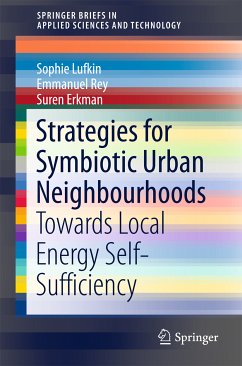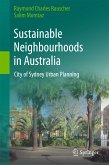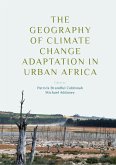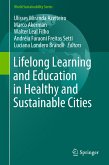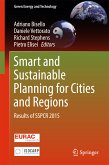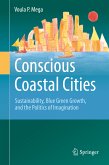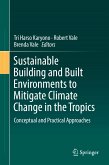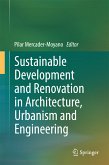Utilizing the results of a case study on the Gare-Lac sector in the city of Yverdon-les-Bains - the site is currently a large urban brownfield, intended to host ca. 3,800 additional inhabitants and 1,200 jobs upon completion - this work examines how to design attractive urban neighbourhoods that generate endogenous economic activity and foster socio-cultural dynamics, while moving towards local energy self-sufficiency.
Exploring the different dimensions influencing energy self-sufficiency at the neighbourhood scale by integrating parameters related to buildings, infrastructure, mobility, food, goods and services, the work focuses on three scenarios (technological, behavioural and symbiotic) for the future development of this neighbourhood through 2035. The scenarios test different design strategies related to industrial symbioses, production, storage, transportation, and urban agriculture.
Exploring the different dimensions influencing energy self-sufficiency at the neighbourhood scale by integrating parameters related to buildings, infrastructure, mobility, food, goods and services, the work focuses on three scenarios (technological, behavioural and symbiotic) for the future development of this neighbourhood through 2035. The scenarios test different design strategies related to industrial symbioses, production, storage, transportation, and urban agriculture.
Dieser Download kann aus rechtlichen Gründen nur mit Rechnungsadresse in A, B, BG, CY, CZ, D, DK, EW, E, FIN, F, GR, HR, H, IRL, I, LT, L, LR, M, NL, PL, P, R, S, SLO, SK ausgeliefert werden.

